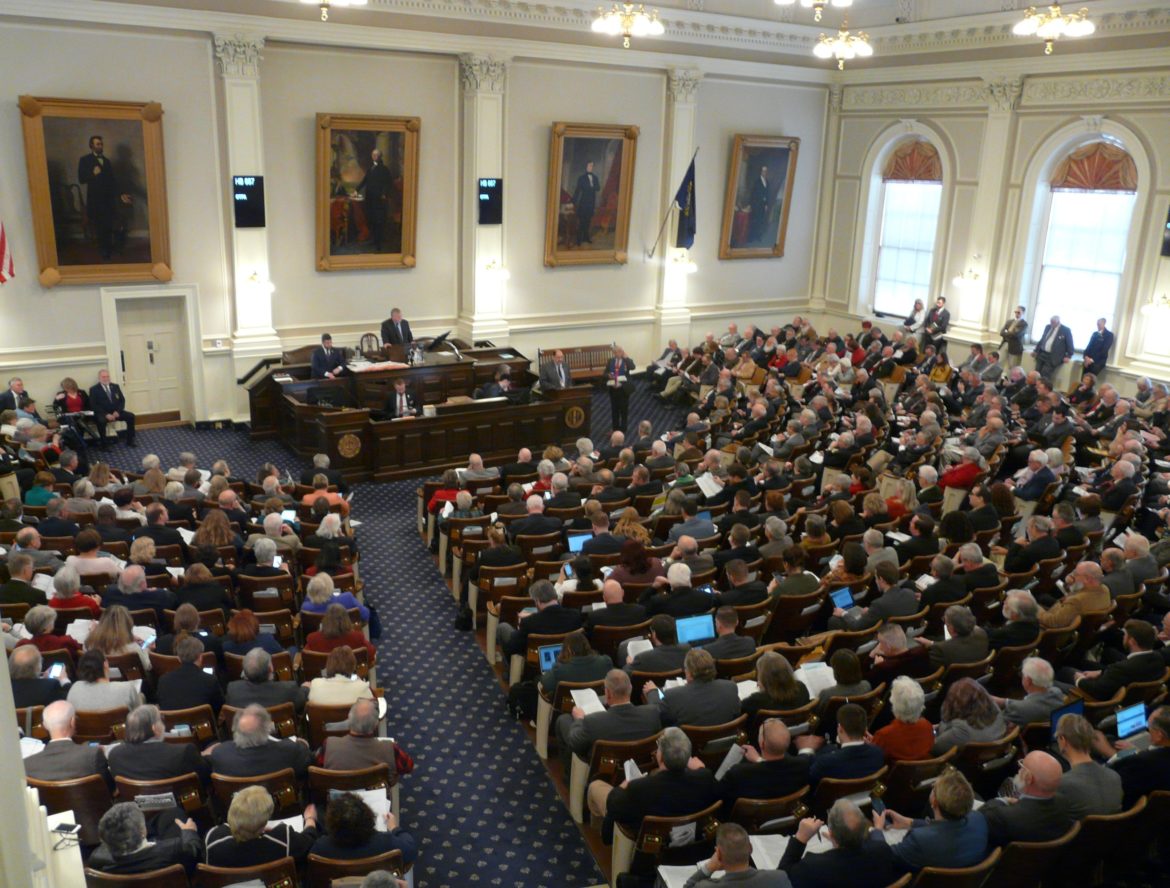By NANCY WEST, InDepthNH.org
CONCORD – The state Supreme Court ruled in an advisory opinion Tuesday that the House of Representatives could meet in session remotely without violating Part 2, Article 20 of the New Hampshire Constitution which says members must be “present.”
The justices wrote: “As long as the requisite number of representatives is ‘present’ either in person or virtually, meaning that the requisite number is ‘at hand’ and ‘not absent’ Part 2 Article 20 is satisfied.”
House Speaker Stephen J. Shurtleff called it a victory.
“Today’s Court ruling is a victory for common sense and safety for staff and members of the General Court and for all Granite Staters, which has been our priority since the beginning of this pandemic,” Shurtleff said.
“We are seeing a sharp rise in the number of cases in New Hampshire and safety needs to continue be the top priority. I am pleased the court has opened this avenue for the House to continue its business.”
Attorney Penny Dean argued before the Court late last month that the state Constitution requires the House to meet in person.
Dean, who represented JR Hoell individually, said, “The Court let the Democrats do an end run around the Constitution, the constitutional requirement to amending the Constitution pertaining to quorum.”
Dean said what is happening now with COVID-19 is not unprecedented because the state has a 100-year history of epidemics or pandemics and what’s happening now should have been expected.
The court has correctly noted over the years both in statutory construction and constitutional construction that the document as a whole must be harmonized and considered. “The Court did not do so in this instance,” Dean said.
Former House legal counsel Paul Twomey told the justices during oral arguments that the case boiled down to one word in Part II, Article 20: “The question before you is what does the word present mean in Article 20? Other parties have parsed that word to death.”
It is not enough to go to a dictionary to determine its meaning, but instead Twomey asked the justices to take into consideration the purpose and intent of the provision, looking into the New Hampshire Constitution as a whole.
Twomey ended his argument saying, “Think about what present means – It means to be able to hear, to be able to speak and to be able to mostly, to vote.”





